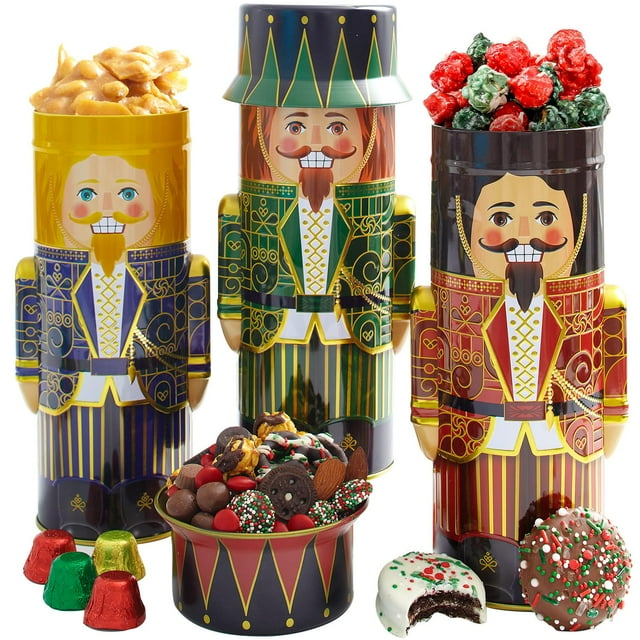
The holiday season is upon us, and Christmas is just around the corner. For many people, Christmas is a time of joy, giving, and spending time with loved ones. However, the holiday has evolved over the years, and its meaning and significance have changed for many. In this article, we will explore the idea that Christmas has become a secular holiday, and how it can be celebrated and enjoyed by people of all backgrounds and faiths.
For many Christians, Christmas is a sacred holiday that commemorates the birth of Jesus Christ. It is a time of spiritual reflection, prayer, and celebration of their faith. However, for many others, Christmas has become a cultural and social phenomenon that is separate from its religious origins. This is evident in the way people of different faiths and backgrounds come together to celebrate the holiday, often with a focus on family, friends, and community.
One of the main reasons Christmas has become a secular holiday is its widespread commercialization. The holiday season is a major shopping event, with billions of dollars spent on gifts, decorations, and other festive items. This has led to a focus on the material aspects of the holiday, rather than its spiritual or religious significance. As a result, people of all backgrounds can participate in the holiday without necessarily being Christian or observing Christian traditions.

Another reason Christmas has become a secular holiday is its cultural significance. The holiday has become an integral part of many cultures around the world, with its own unique traditions, customs, and practices. For example, in many countries, Christmas is a time for festive foods, drinks, and music, which are enjoyed by people of all backgrounds. This cultural aspect of the holiday has made it accessible to people who may not necessarily identify with its Christian origins.
Celebrating Christmas as a Secular Holiday
So, how can people celebrate Christmas as a secular holiday? Here are a few ideas:
- Focus on family and friends: Christmas is a great time to spend with loved ones, regardless of their faith or background. Plan a festive dinner, go on a holiday outing, or simply enjoy each other's company.
- Give to charity: Instead of buying gifts for each other, consider giving to a charity or cause that you care about. This can be a great way to give back to the community and make a positive impact.
- Enjoy festive activities: There are many fun and festive activities to enjoy during the holiday season, such as ice skating, sledding, or attending a holiday market.
- Create new traditions: If you're not Christian, you can still create your own holiday traditions and customs. For example, you could start a new family tradition, such as making a special holiday dish or decorating a tree.
Benefits of Celebrating Christmas as a Secular Holiday
There are many benefits to celebrating Christmas as a secular holiday. Here are a few:
- Inclusivity: By focusing on the cultural and social aspects of the holiday, rather than its religious significance, you can make it more inclusive and accessible to people of all backgrounds.
- Community building: Christmas can be a great time to build community and connect with others. By focusing on the secular aspects of the holiday, you can bring people together and create a sense of belonging.
- Stress reduction: Let's face it, the holiday season can be stressful, especially if you're trying to observe certain traditions or customs. By focusing on the secular aspects of the holiday, you can reduce stress and enjoy the season more.

Christmas Around the World
Christmas is celebrated in many different ways around the world, reflecting the unique cultural and social traditions of each country. Here are a few examples:
- In Germany, Christmas is a time for festive markets, glühwein, and lebkuchen.
- In Italy, Christmas is a time for family, food, and festivities, with a focus on the Feast of the Seven Fishes.
- In Japan, Christmas is a time for Kentucky Fried Chicken and strawberry shortcake, thanks to a successful marketing campaign in the 1970s.
- In India, Christmas is a time for Midnight Mass, decorations, and festive foods, with a focus on the country's Christian minority.
Christmas Traditions
There are many unique and interesting Christmas traditions around the world. Here are a few examples:
- In Iceland, the Yule Lads visit children over the 13 nights leading up to Christmas, leaving small gifts or playful pranks.
- In Spain, the Three Wise Men are the main focus of the holiday, with parades and processions on January 6th, the Epiphany.
- In Sweden, Christmas is a time for festive foods, such as lutfisk and pepparkakor, and for singing traditional Christmas carols.
- In Australia, Christmas is a time for outdoor festivities, such as barbecues and picnics, thanks to the country's warm climate.

Conclusion
Christmas is a holiday that can be celebrated and enjoyed by people of all backgrounds and faiths. By focusing on the cultural and social aspects of the holiday, rather than its religious significance, you can make it more inclusive and accessible to everyone. Whether you're Christian or not, there are many ways to celebrate Christmas and make it a special and meaningful time of year.
Gallery of Christmas Celebrations




What is the meaning of Christmas?
+Christmas is a holiday that commemorates the birth of Jesus Christ and is observed on December 25 by Christians around the world.
How can I celebrate Christmas as a secular holiday?
+You can celebrate Christmas as a secular holiday by focusing on the cultural and social aspects of the holiday, such as spending time with family and friends, giving to charity, and enjoying festive activities.
What are some unique Christmas traditions around the world?
+There are many unique Christmas traditions around the world, such as the Yule Lads in Iceland, the Three Wise Men in Spain, and festive foods in Sweden and Australia.